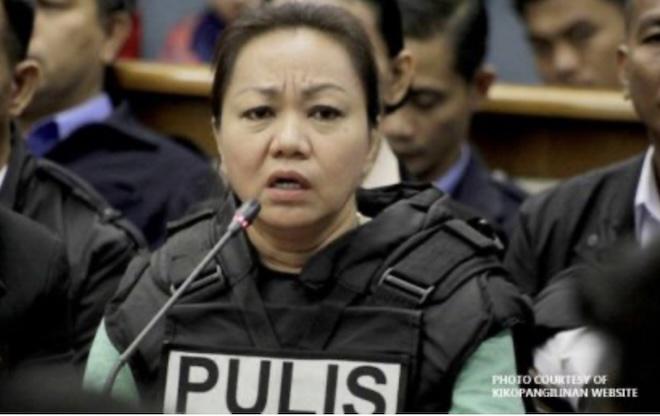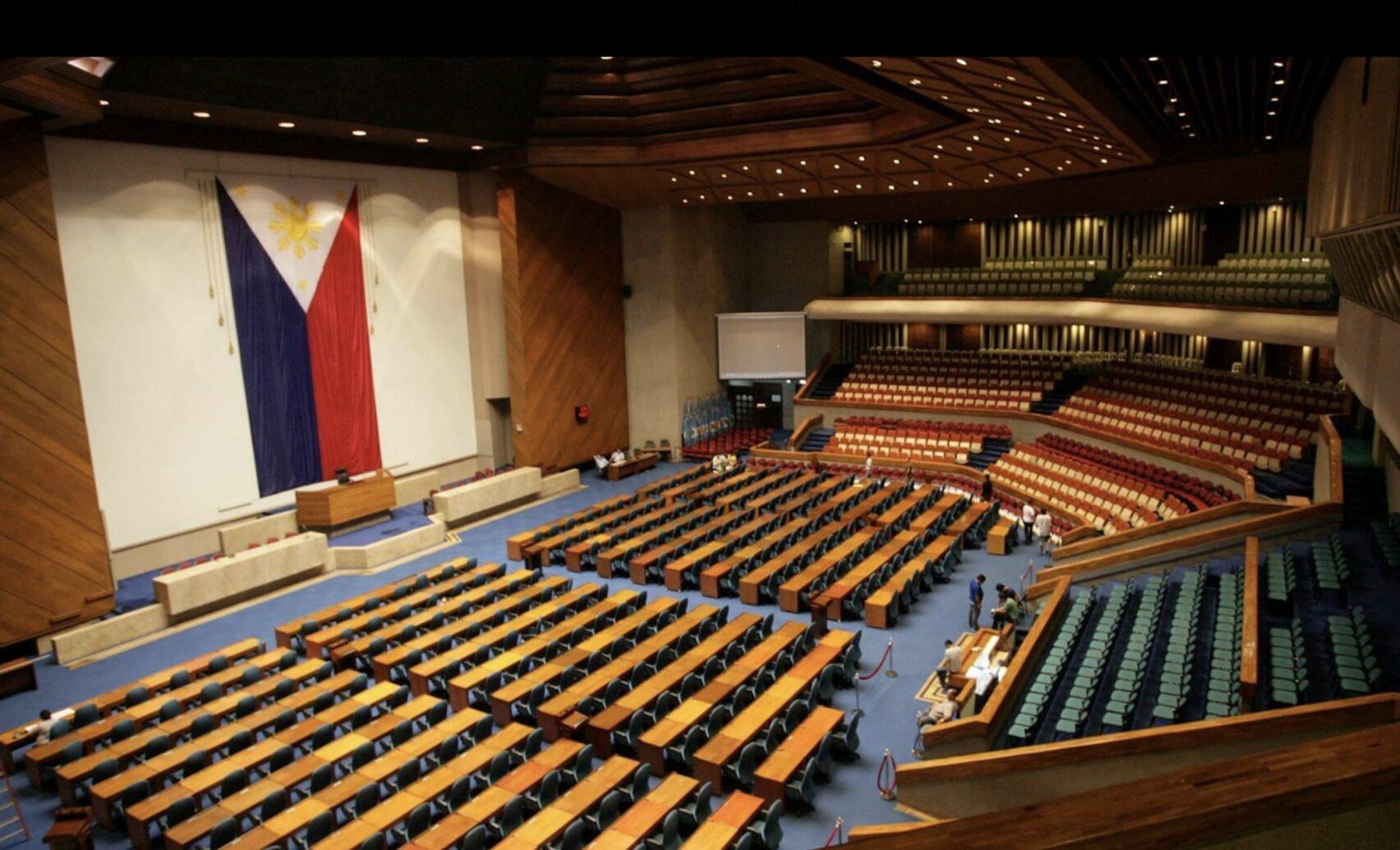Members of the 19th Congress of the Philippines at the Senate Session Hall. (Courtesy of the Senate of the Philippines)
Standing, from left: Senators Ronald “Bato” Dela Rosa, Christopher “Bong” Go, Mark Villar, Lito Lapid, Alan Peter Cayetano, Robin Padilla, Raffy Tulfo, Ramon “Bong” Revilla Jr., Sherwin “Win” Gatchalian, Juan Miguel “Migz” Zubiri, Joel Villanueva, and Joseph Victor “JV” Ejercito.
Seated, from left: Senators Cynthia Villar, Grace Poe, Imee Marcos, Pia Cayetano, Jose “Jinggoy” Estrada (President Pro Tempore), Francis “Chiz” Escudero (Senate President), Francis Tolentino (Majority Leader), Aquilino “Koko” Pimentel III (Minority Leader), Risa Hontiveros, Loren Legarda, and Nancy Binay.
The Senate has returned the impeachment complaint against Vice President Sara Duterte to the House for constitutional review, canceling the trial reading and giving lawmakers until June 14 to act.
MANILA, Philippines — The Senate, acting as an impeachment court, voted on Tuesday, June 10, to return the impeachment complaint against Vice President Sara Duterte to the House of Representatives for constitutional clarification—a highly anticipated move that signals a potential pause in one of the most politically charged cases in recent Philippine history.
The decision, passed by an 18–5 vote with no abstentions, halts the impeachment trial’s progress just days before the 19th Congress adjourns sine die on June 14. A formal resolution approved by the chamber asked the House to certify that the articles of impeachment meet constitutional and procedural standards required for trial.
Senator Alan Peter Cayetano, in his sponsorship speech, emphasized that the move was not a dismissal but a procedural clarification.
“The Senate is not dismissing the case but is merely asking the House to clarify that the constitutional requirements were complied with,” Cayetano said.
SENATE CALLS OFF IMPEACHMENT READING
On June 11, Senate President Chiz Escudero confirmed that the Senate had canceled its scheduled reading of the articles of impeachment. In a letter to House Speaker Martin Romualdez, Escudero emphasized that trial preparations will remain on hold until the House responds to the request for clarification.
Although the Senate had already issued a writ of summons to Vice President Duterte, the trial cannot move forward unless the House formally reaffirms that the complaint meets constitutional standards. Under Senate rules, Duterte would have 10 days to answer the summons upon receipt.
“The Senate will act as soon as all constitutional parameters are clearly satisfied,” Escudero said in a media briefing.
ORIGINS OF THE IMPEACHMENT
The House of Representatives filed the impeachment complaint on February 5, 2025, with over 215 lawmakers signing on—well above the one-third threshold required for transmittal to the Senate.
The complaint includes eight articles of impeachment, such as:
- Misuse of confidential and intelligence funds;
- Unexplained wealth and omissions in Statement of Assets, Liabilities, and Net Worth (SALN);
- Alleged threats—direct or implied—against President Ferdinand Marcos Jr., First Lady Liza Araneta-Marcos, and Speaker Romualdez;
- Corruption, abuse of power, and betrayal of public trust;
- Alleged involvement in destabilization or assassination plots.
Vice President Duterte has denied all charges, calling the complaint a political maneuver. In public statements, her allies have described the case as vague and insufficiently substantiated.
POLITICAL RIFT WIDENS
The impeachment is unfolding amid a well-documented fallout between Duterte and Marcos, whose once-formidable UniTeam alliance fractured in mid-2024. Duterte resigned from the Cabinet and became openly critical of several administration policies, particularly in education and national security.
Her allies, such as Senator Ronald “Bato” dela Rosa, have sought dismissal of the case on procedural grounds, pointing to a 100-day gap between the complaint’s filing and the Senate’s first action.
LEGAL DEBATE AND CONSTITUTIONAL ISSUES
Minority senators, including Risa Hontiveros, argue that the Senate’s move to return the complaint is unconstitutional, asserting that its sole role is to conduct a trial once a valid complaint is received.
However, majority senators cite Article XI, Section 3 of the Constitution, asserting that the Senate is entitled to seek procedural clarity before trial. Legal scholars remain divided on whether the Senate has the authority to pause proceedings in this way.
“This return to the House is not about evading the trial—it’s about respecting the Constitution,” one senator remarked during floor debates.
WHAT’S NEXT
The House of Representatives has until June 14, the final session day of the 19th Congress, to certify or amend the complaint. If it does, the Senate trial may still proceed during the 20th Congress, which opens on July 28. Senate President Escudero had earlier proposed July 30 as the trial’s tentative start date.
If the House fails to act in time, Duterte’s allies are expected to call for the case’s dismissal, citing delay and noncompliance with constitutional timelines.
EYES ON 2028
With Vice President Duterte widely seen as a leading contender in the 2028 presidential elections, the impeachment carries broader political implications. A conviction would remove her from office and likely bar her from future public service. Conversely, a failed or stalled process could strengthen her populist appeal and deepen fissures in the ruling coalition.






